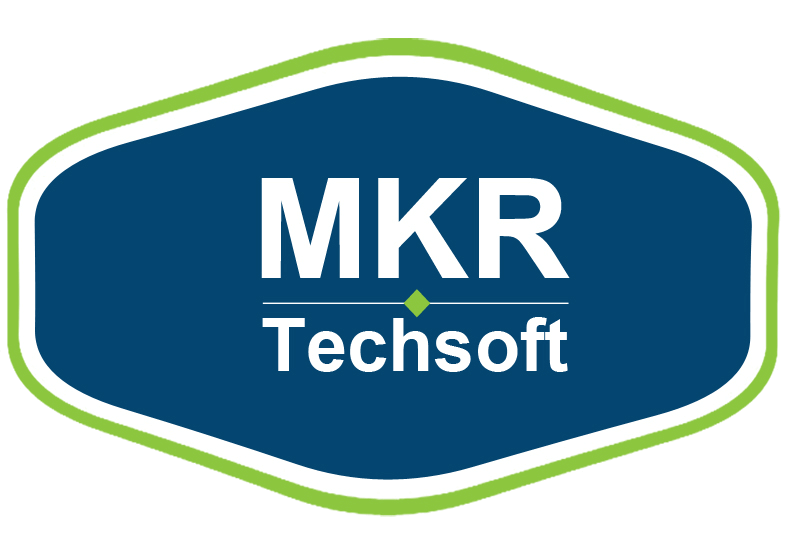In this dynamic digital age, the marketing landscape is in a lasting state of flux. The rapid climb of artificial intelligence (AI) has not just reshaped but reinvented the very foundation of how businesses connect with and captivate their target audiences. From the ever-present presence of chatbots and the insightful ability of data analytics to the magic of personalization and the predictive wizardry of algorithms, AI has seamlessly woven itself into the fabric of marketing strategies. The impact of AI on digital marketing is nothing short of transformative, with businesses harnessing its capabilities to engage, innovate, and succeed in this ever-evolving digital landscape.
In this comprehensive overview, we will not only delve into the profound impact of AI on digital marketing but also uncover the myriad ways in which it’s revolutionizing this ever-evolving industry.
Understanding AI in Digital Marketing
What Is Artificial Intelligence?
Artificial intelligence is the simulation of human intelligence processes by machines, specifically computer systems. These processes include learning (the addition of data and guidelines for using that information), reasoning (the use of rules to reach approximate or definite conclusions), and self-correction. AI systems are designed to perform tasks that normally require human intelligence, such as visual perception, speech recognition, decision-making, and translating languages.
AI and Machine Learning
Machine learning is a subset of artificial intelligence that focuses on the evolution of mathematical and statistical models that allow computers to improve their performance on a specific task by analyzing data. In digital marketing, machine learning is crucial for understanding customer behavior, making predictions, and automating various tasks. These capabilities are at the forefront of the impact of AI on marketing, enabling businesses to harness the power of data-driven insights and automation for a more effective and efficient approach to engaging their target audiences.
The Evolution of AI in Digital Marketing
The journey of AI in digital marketing has seen remarkable advancements over the years. Let’s explore the key milestones:
1. Chatbots and Virtual Assistants
One of the earliest and most visible applications of AI in digital marketing is the usage of chatbots and virtual assistants. These automated systems are intended to interact with users in real-time, answering questions and assisting them. Chatbots have become attach on websites and social media platforms, enhancing user experiences by providing immediate responses.
2. Predictive Analytics
AI-driven predictive analytics tools have revolutionized the way companies analyze customer data. These tools can forecast future trends and behaviors, allowing businesses to tailor their marketing strategies to meet customer demands effectively. Predictive analytics can help in lead scoring, identifying potential customers, and optimizing content for better engagement.
3. Personalization
Personalization is a game-changer in digital marketing. In order to deliver personalized content and product recommendations, AI algorithms analyze user behavior and preferences. By understanding individual interests, digital marketers can create highly targeted campaigns, resulting in increased customer satisfaction and higher conversion rates.
4. Programmatic Advertising
Programmatic advertising leverages AI to automate the buying of ads and real-time bidding. AI algorithms analyze vast datasets to determine the most suitable ad placements, ensuring ads reach the right audiences at the right time. This approach optimizes ad spend and maximizes ROI.
5. Content Generation
Today, AI-powered tools can create written content, create graphics, and even edit videos. This has reduced the time and effort required to create content, allowing marketers to focus on strategy and creativity.
6. Voice Search
The popularity of smart speakers and virtual assistants like Apple’s Siri and Amazon’s Alexa has increased the use of voice search technology, which AI powers. To ensure their content ranks highly in voice search results, digital marketers are adjusting to voice search optimization.
7. Data Analysis
AI has greatly enhanced data analysis in digital marketing. It can process immense volumes of data quickly and efficiently, providing actionable insights for improving marketing campaigns. This ability to make sense of data is vital for staying competitive in the marketing landscape.
The Benefits of AI in Digital Marketing
The integration of AI into digital marketing has brought about numerous benefits:
1. Improved Customer Engagement
Virtual assistants and chatbots powered by AI offer round-the-clock customer support, improving user experiences and increasing engagement. Quick responses to inquiries are ensured by these automated systems, increasing client satisfaction and promoting trust.
2. Enhanced Personalization
AI’s data analysis capabilities enable the delivery of highly personalized content and product recommendations. By understanding individual preferences and behaviors, digital marketers can create tailored campaigns, resulting in higher conversion rates and customer loyalty.
3. Cost Efficiency
AI-powered programmatic advertising maximizes ad spend by focusing on the most important demographic data. It ensures that ads are shown at the right time and place, ultimately saving money and improving the return on investment (ROI).
4. Data-Driven Decision Making
The speed with which AI can process and analyze large amounts of data results in priceless insights for marketing decision-making based on data. To successfully meet customer demands, marketers can make well-informed decisions, optimize campaigns, and modify strategies.
5. Increased Efficiency
By automating routine tasks like content creation and data analysis, marketers have more time to commit to higher-order strategy and creativity. This increased efficiency translates to better campaign management and productivity in digital marketing.
AI in SEO
Search engine optimization (SEO) is an essential aspect of marketing, and AI is changing the way it works. Here’s how:
1. Voice Search Optimization
AI is transforming SEO to accommodate the rise of voice search. With the prevalence of voice-activated devices such as smart speakers and virtual assistants, AI assists websites in optimizing for conversational queries. This involves understanding natural language and providing concise, relevant answers to user questions. Implementing voice search optimization is essential to ensure your content remains discoverable in this voice-driven era.
2. Content Optimization
AI plays a significant role in content optimization. It can analyze search trends, user behavior, and competitors to suggest keywords, topics, and content modifications that improve search engine rankings. AI-driven tools offer data-driven insights, allowing content creators to tailor their material to meet both search engine algorithms and user preferences effectively.
3. Structured Data
Structured data markup enhances the visibility of content in search results. AI can help with structured data implementation by identifying the best schema for your content. This not only helps search engines understand your content better but also makes your listings more appealing and informative to users, potentially leading to higher click-through rates. Incorporating structured data is a fundamental aspect of AI-driven SEO strategies.
Ethical Considerations
As AI continues to shape digital marketing, ethical considerations must not be overlooked. These include:
1. Data Privacy
The use of AI in data collection and analysis necessitates strict data privacy regulations. Marketers must be open about how they use data and obtain consent.
2. Bias
Historical data may contain forced biases as a result of AI algorithms. Ensuring fairness and equity in AI-driven marketing campaigns is a paramount concern.
3. Transparency
It’s possible that AI-driven decision-making is not always transparent. Digital marketers must strive for transparency to build trust with customers.
Case Studies
Let’s take a look at a few case studies of successful AI-driven digital marketing campaigns:
1. Netflix
Netflix utilizes AI to deliver personalized content recommendations, enhancing user retention and engagement. Through AI-driven algorithms, users are presented with movies and TV shows that align with their viewing history and preferences, resulting in increased satisfaction and longer subscription durations.
2. Amazon
Amazon’s AI-powered recommendation system significantly contributes to its revenue. Amazon makes recommendations for products based on customer behavior and past purchases. This personalized approach drives sales and customer loyalty, illustrating the effectiveness of AI in boosting e-commerce success.
3. Spotify
Spotify leverages AI to curate personalized playlists for its users. The platform analyzes music preferences, listening history, and trends to create playlists that suit individual tastes. This personalization feature distinguishes Spotify and keeps users engaged, fostering a loyal user base and increased streaming hours.
Conclusion
AI has undeniably had a profound impact on marketing, completely reshaping the way companies connect with their target audiences. From the implementation of chatbots and predictive analytics to the delivery of highly personalized content and the optimization of programmatic advertising, AI has become an essential tool in the marketer’s arsenal. It’s imperative for digital marketers to not only adapt to these transformative changes but also to do so ethically, ensuring transparency and fairness in their AI-driven campaigns.
At MKR Techsoft, we recognize the importance of embracing these AI capabilities. By harnessing the power of artificial intelligence, our digital marketers can create more effective, efficient, and engaging campaigns that resound with their audiences on a deeper level. So, don’t miss out on the impact of AI on digital marketing – it’s a game-changer that’s here to stay, and MKR Techsoft is here to help you leverage it to your advantage!















